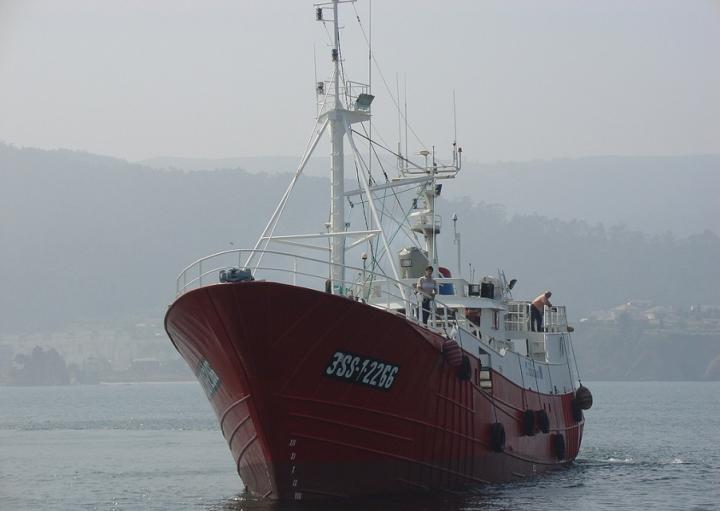
Credit: O roxo, Flickr, CC BY-SA 2.0.
Carbon dioxide emissions from fuel burnt by fishing boats are 30 per cent higher than previously reported, researchers with the Sea Around Us initiative at the University of British Columbia and the Sea Around Us – Indian Ocean at the University of Western Australia have found.
In a study published in Marine Policy, the scientists show that 207-million tonnes of CO2 were released into the atmosphere by marine fishing vessels in 2016 alone. This is almost the same amount of CO2 emitted by 51 coal-fired power plants in the same timeframe.
“The marine fishing industry relies heavily on the use of fossil fuel and its role in global greenhouse gas emissions has been largely ignored from a policy or management perspective,” said Krista Greer, lead author of the study and a researcher with the Sea Around Us at UBC. “Until now, the most comprehensive study of carbon dioxide emissions from fishing suggested that in 2011, fisheries released 112-million tonnes of CO2 per year from the combustion of fuel during fishing.”
The previous data suggested fisheries contributed to only 0.29 per cent of global CO2 emissions, while the new study indicates that their contribution is almost twice that amount. The higher values are largely due to the UBC-UWA research considering regional differences in fuel use based on fishing effort and the amount of fuel used to catch 30-million tonnes of fish that were not reported in 2016.
Greer and her colleagues used the Sea Around Us‘ global catch and fishing effort database to calculate the amount of carbon dioxide emitted by each boat operating in each country’s different fishing sectors and the amount of CO2 emitted per tonne of each fish those boats catch, also known as emissions intensity.
“We found that global emissions intensity for 2016, on average, was 1.88 tonnes of carbon dioxide, compared to 1.5 tonnes in 1950. This is despite the fact that marine catches have been declining since the mid-1990s,” said Greer. “The emissions intensity of small-scale, artisanal and subsistence fleets has increased the most over the time period in terms of magnitude, but the industrial sector continues to be the greatest contributor to overall emissions.”
In their analysis, the researchers also found that the emissions intensity started to grow in the 1980s.
“Small-scale fisheries caught up with the industrial sector because artisanal and subsistence fishers began installing gasoline-powered engines on their boats,” said Dirk Zeller, co-author of the study and leader of the Sea Around Us – Indian Ocean at the University of Western Australia. “This means that there’s a need to think of emission reduction strategies, such as switching to small diesel-powered engines in small-scale fisheries.”
According to Zeller, industrial fisheries also need to do their part by reducing their fishing effort, which is currently three to four times what it should be in order to be sustainable. This would not only allow for a reduction in CO2 emissions by industrial fleets but would foster the recovery of declining fish populations.
###
Media Contact
Valentina Ruiz Leotaud
[email protected]
Original Source
http://bit.
Related Journal Article
http://dx.




